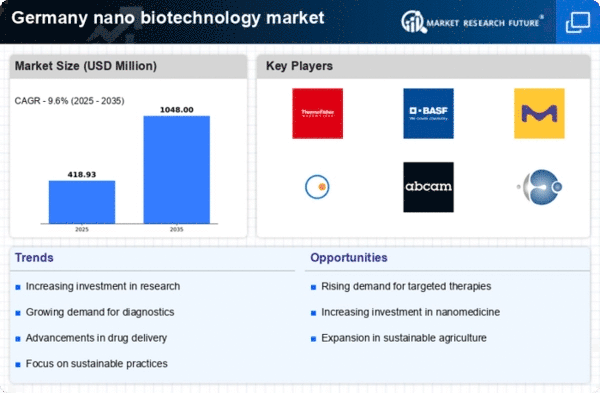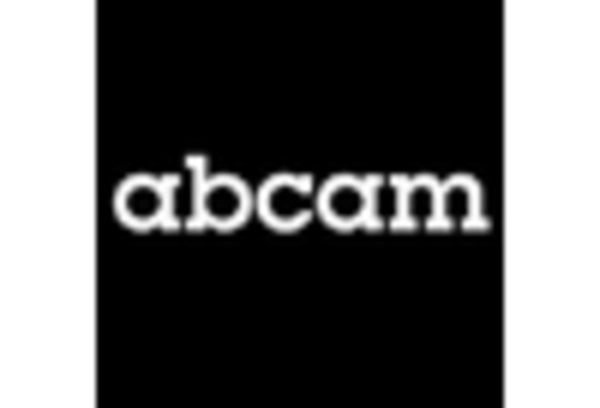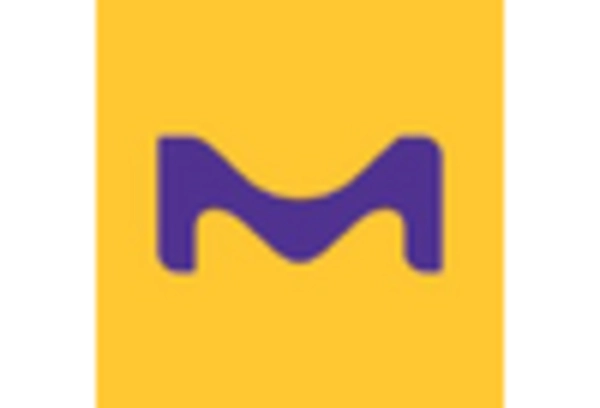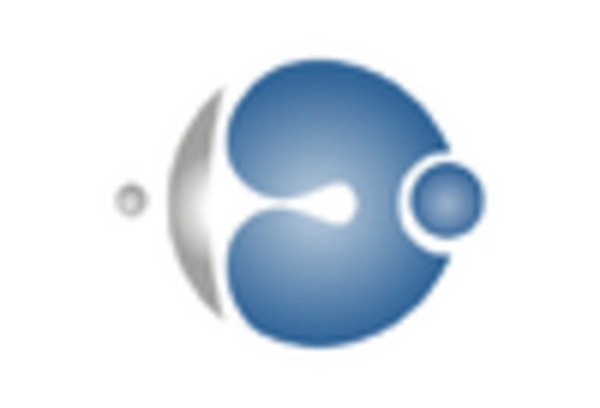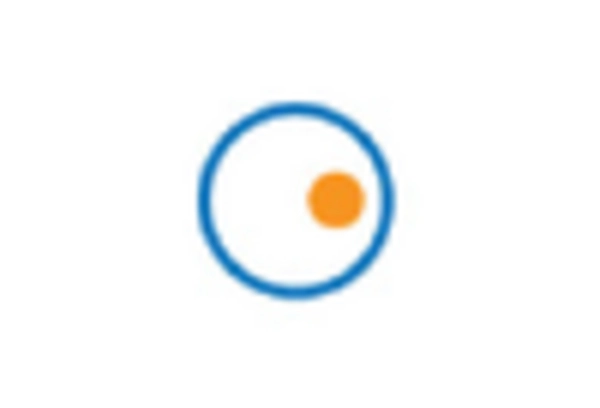Growing Applications in Agriculture
The nano biotechnology market in Germany is witnessing a growing interest in agricultural applications. Nanotechnology offers innovative solutions for enhancing crop yield and sustainability. For example, nano-fertilizers and nano-pesticides are being developed to improve nutrient delivery and reduce chemical runoff. These products not only enhance agricultural productivity but also address environmental concerns associated with traditional farming practices. The market for nano-enabled agricultural products in Germany is projected to grow by 20% annually, reflecting a shift towards more sustainable agricultural practices. As farmers and agribusinesses increasingly adopt these technologies, the nano biotechnology market is expected to expand, driven by the dual goals of improving food security and minimizing environmental impact.
Advancements in Diagnostic Techniques
Innovations in diagnostic techniques are playing a crucial role in the evolution of the nano biotechnology market in Germany. The integration of nanotechnology into diagnostic tools has led to the development of highly sensitive and specific assays. These advancements enable earlier detection of diseases, which is vital for effective treatment. For instance, nano-based biosensors can detect biomarkers at extremely low concentrations, improving diagnostic accuracy. The German market for diagnostic applications utilizing nanotechnology is expected to reach €1 billion by 2026, highlighting the increasing reliance on these technologies in clinical settings. As healthcare systems prioritize early diagnosis and preventive care, the demand for nanotechnology-based diagnostics is anticipated to rise, further propelling the nano biotechnology market.
Rising Consumer Awareness and Acceptance
Consumer awareness regarding the benefits of nanotechnology is steadily increasing in Germany, positively impacting the nano biotechnology market. As individuals become more informed about the potential applications of nanotechnology in healthcare, food safety, and environmental sustainability, there is a growing acceptance of products that utilize these innovations. This trend is particularly evident in the cosmetics and personal care sectors, where nano-ingredients are being embraced for their enhanced performance. Market Research Future indicates that approximately 60% of German consumers are open to using products containing nanotechnology, suggesting a favorable environment for market growth. As consumer demand for innovative and effective solutions continues to rise, the nano biotechnology market is likely to experience significant expansion in the coming years.
Increasing Demand for Targeted Drug Delivery
The nano biotechnology market in Germany is experiencing a notable surge in demand for targeted drug delivery systems. This trend is largely driven by the need for more effective treatments with fewer side effects. Nanoparticles can be engineered to deliver drugs directly to diseased cells, enhancing therapeutic efficacy. According to recent estimates, the market for targeted drug delivery in Germany is projected to grow at a CAGR of approximately 15% over the next five years. This growth is indicative of a broader shift towards personalized medicine, where treatments are tailored to individual patient profiles. As healthcare providers increasingly adopt these advanced delivery systems, the nano biotechnology market is likely to expand significantly, reflecting a growing recognition of the potential benefits of nanotechnology in pharmaceuticals.
Regulatory Support for Nanotechnology Innovations
Regulatory frameworks in Germany are increasingly supportive of innovations within the nano biotechnology market. The German government has established guidelines that facilitate the safe development and commercialization of nanotechnology products. This regulatory environment encourages investment and research in nanobiotechnology, as companies can navigate the approval processes with greater clarity. Furthermore, initiatives aimed at promoting public-private partnerships are fostering collaboration between research institutions and industry players. As a result, the nano biotechnology market is likely to benefit from enhanced innovation and product development, positioning Germany as a leader in the field. The proactive stance of regulatory bodies may also attract foreign investments, further stimulating market growth.


